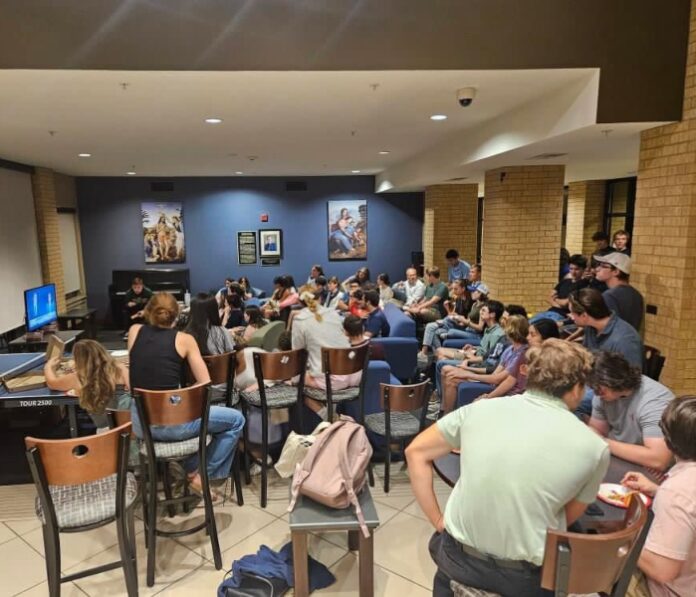A Formal Analysis
Disclaimer: All articles published within the Commentary Section are the opinions of the respective authors and do not necessarily reflect the opinions of The Cor Chronicle
In light of the recent televised debate between Harris and Trump, as well as the current conversation around the upcoming potential debate on October 23, it seems necessary to evaluate the medium of televised debates.
If televised debates are to be evaluated on the basis of their political utility to the American people, we ought to analyze their nature and intended end. To analyze debates, we need to first understand rhetoric. Good rhetoric is the counterpart of dialectic and functions by applying various means of persuasion.
According to Aristotle, there are three primary means of persuasion. These are the three ‘pisteis’, which direct rhetorical method: ethos, pathos and logos. These aim to move an audience to the same perception of truth as the speaker.
From a historical perspective, TV debates first became prominent in the 1960 presidential election between John F. Kennedy and Richard Nixon. They served to provide the American people direct access to the platforms and personalities of the two candidates. Through the latter half of the 20th century and into the 21st, TV debates served an important function–they provided a unique and candid shot of the candidates performing under stress, a compelling test for one’s capacity as president.
Former President Richard Nixon’s debate experience in 1960 colored not only his campaign, but also the rest of his political career. When he ran for reelection in 1968, he refused Sen. McGovern’s challenge to debate.
Historian Ken Hughes of the University of Virginia’s Miller Center discovered tapes in which Nixon cites national security concerns related to Vietnam as the primary rationale behind the refusal to debate. In a conversation with his Campaign Manager Ron Zigler, Nixon says “What should he say? That no incumbent President should debate his opponent…the differences between these two are so great they don’t need a debate to bring them out.”
He continues, speaking about more immediate political concerns, saying, “Well, it isn’t just the prestige; I don’t want to give him all that coverage.” If we consider these words in light of the current political situation, a parallel emerges.
What good is coverage for the sake of coverage? What is the end of this rhetoric? Are the means by which this end is achieved right and good?
The debates of recent years differ both in form and character from the debates of the 1960s. Gone is the impartiality of moderators, the forthright positions of candidates, the focus on platform over cheap ad hominem attacks and intellectual instead of emotional appeals. Here, rhetoric’s end is subverted. It does not portray the contrast of what is versus what ought to be according to the candidates, but instead produces a false dream world constructed in the abstract. Currently, TV presidential debates say very little and are an attempt to appeal to the greatest number of voters who have already made up their minds.
The question stands, Nixon’s objection remains and we, the people, must ask ourselves whether the current format of the modern TV debate still serves us as it currently stands. Do you feel better informed about the positions and capacities of either Trump or Harris in the wake of the recent debate?
Emily Phillips is a junior philosophy major.

